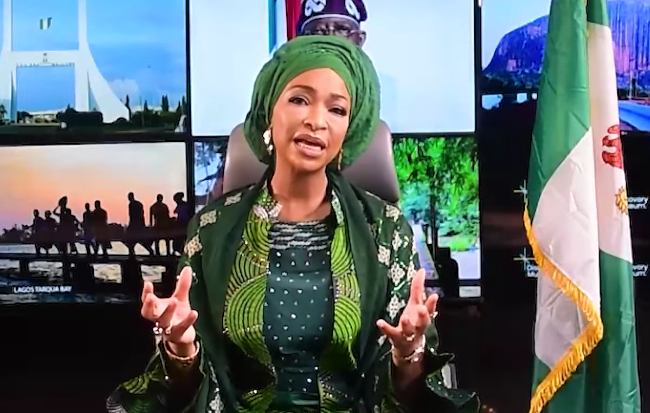Nigeria’s Minister of Arts, Culture, and Creative Economy, Hannatu Musawa, has sparked national debate after publicly advocating that political power should remain in the southern region for another four years to maintain Nigeria’s fragile political equilibrium. Speaking during a live interview on Sunrise Daily, Musawa emphasized the continued relevance of zoning, a long-standing but unofficial power-sharing arrangement designed to rotate political leadership between the North and South.
According to Musawa, with President Muhammadu Buhari’s eight-year tenure representing the North having just ended, fairness and national stability demand that power stay in the South beyond 2027. “For the next two to four years, we should have a southern president. Ideally, this should continue for another four years to help create balance,” she said. The minister stressed that although the goal is to one day transcend regional and ethnic politics, Nigeria isn’t there yet. Until then, she argued, zoning remains a necessary tool to ensure inclusion and peace.
Musawa further explained that the country’s diversity must be respected through shared leadership. “Since we haven’t reached that point yet, for now, it’s essential for power to remain in the South for the next few years,” she noted. Her remarks come at a time when political tensions are rising ahead of the 2027 general elections, with both northern and southern blocs already strategizing for dominance in the next electoral cycle.
Read also:
- PDP reconciliation committee chairman Shehu Adamu Furas dumps party for ADC
- Bode George slams PDP defections to ADC
- Peter Obi backs ADC coalition, vows Nigerians will come first in 2027 agenda
The Minister also referenced a poem she wrote, titled I Am a Nigerian, which she plans to reintroduce in the national conversation. According to her, the poem captures the essence of unity in diversity and the dream of a Nigeria where merit, not ethnicity, shapes leadership choices.
Her statement adds momentum to the ongoing discourse on zoning, particularly as President Bola Ahmed Tinubu, a southern leader who assumed office in 2023, is expected to seek re-election in 2027. While the zoning debate is not codified in Nigeria’s Constitution, it remains a deeply influential political practice aimed at managing the country’s ethnic and regional complexities.






